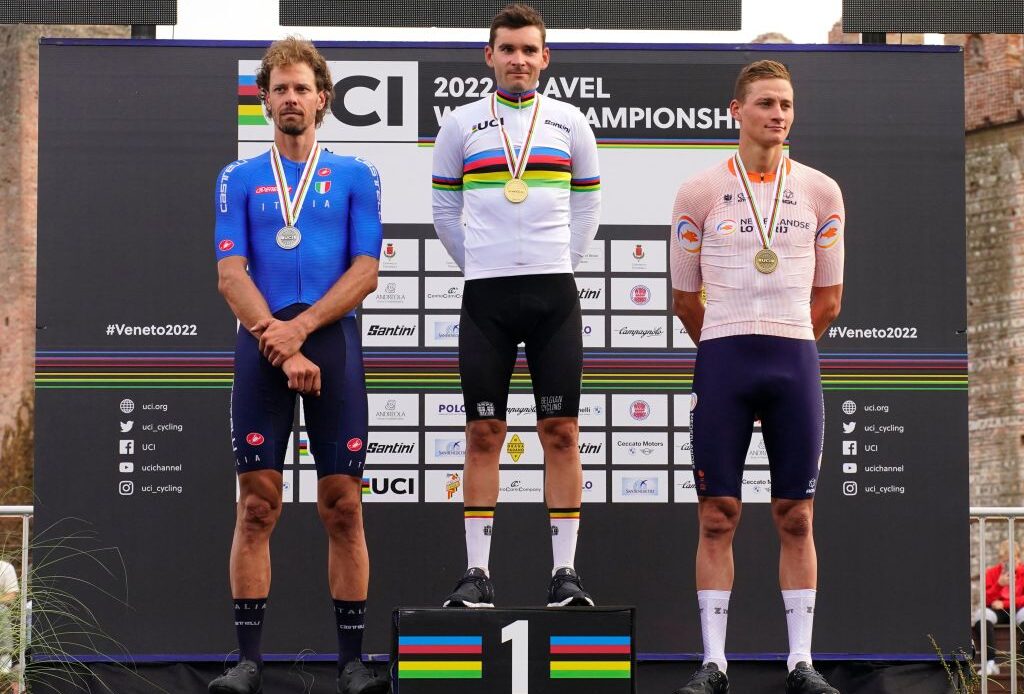Gianni Vermeersch and Daniel Oss went on the attack for 150km at the inaugural UCI Gravel World Championships, sharing the effort on the gravel roads of the Italian Veneto region before fighting for the rainbow jersey in the final kilometres.
The Belgian Alpecin-Deceuninck rider got away on a section of single track with around ten kilometres to go and never looked back, with Oss taking the silver medal as the underdogs had their day and took the gravel glory.
Vermeersch pulled on the first-ever gravel world champion’s rainbow jersey, with his Alpecin-Deceuninck team leader Mathieu van der Poel winning the sprint for the bronze medal, some 1:28 behind.
Greg van Avermaet, under 23 road racing world champion Yevgeniy Fedorov of Astana was fifth and Magnus Cort of EF Education-EasyPost sixth, as professional road racers dominated the top 10.
Vermeersch has won three road races during his career and raced cyclo-cross since 2012 but winning the Gravel World Championships was huge.
“I think this is the biggest victory of my career,” he said. “It’s crazy, I never thought I’d be a world champion and to get it in the first edition of the gravel world championships is something special. It’s unique.”
“In cyclo-cross I’ve always raced against Mathieu and Wout van Aert, so it’s almost impossible to be World Champion in ‘cross and the level is so high on the road. This was my one chance to be world champion and so I took it.”
Oss attacked after 40km, after some fast early surges and splits were controlled by the front of the 180-rider peloton. Vermeersch sensed an opportunity to protect the chances of Belgian team leader Greg van Avermaet and Van der Poel and play his own cards.
When the others eased up and struggled to mount a determined chase, Vermeersch and Oss never looked back, working smoothly together and getting vital timer checks from the quad bikes filming the race for live television.
“It was a flat race but it was a hard race. We finished one by one, that showed how hard and how fast it was,” Oss said.
“We went away after other attacks on the climbs and on the fast corners. Gaps opened up due to slips and everyone being under pressure. If they let you go like that, you gain a minute or two quickly. And like in Paris-Roubaix, once you’re away, the speed in the attack and the group is about the same, so it’s hard to come back.
“We worked together because it was a great chance for both of us. It was hard for me to follow him on the technical stuff in the last ten…
Click Here to Read the Full Original Article at CyclingNews RSS Feed…

